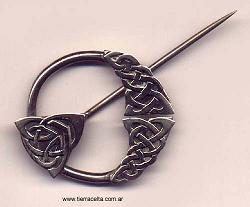 The term chimera is used to designate that imaginary monster with the head of a lion, the body of a goat and the tail of a dragon, which, according to what the fable maintains, in addition to presenting the aforementioned physiognomy, vomited flames.
The term chimera is used to designate that imaginary monster with the head of a lion, the body of a goat and the tail of a dragon, which, according to what the fable maintains, in addition to presenting the aforementioned physiognomy, vomited flames.
Greek mythology: fantastic monster of enormous power and fearsome
Especially In Greek mythology Chimera was a horrendous and tremendous monster, son of Typhon (the youngest son of Gea) and of Echidna (a character that represented the viper in Hellenic mythology), who roamed the different regions of Asia Minor, awakening in his wake the terror among the people and devouring every animal that crossed his path. Many believe that behind this myth could be a real battle against a warrior leader, whose name, symbol or title had some relationship with the goat.
Chimera was invincible and that is why everyone feared him until the Greek hero and son of Poseidon named Bellerophon, faced him like no one else and managed to destroy it through a piece of lead that he would have implanted in the tip of his spear.
Something fanciful or utopian
On the other hand, the term is recurrently used to refer to something fanciful or utopian, something that someone may believe possible but in reality it is not. "My brother dreams of the chimera of a world without wars."
A chimera would be something that is certainly impossible to achieve, although we must emphasize that beyond knowing it, people think about it, dream about it and hope that sooner or later they will achieve it.
Resource widely used in fictional stories
In the world of fiction, in literature, in the cinema, on television, in the theater, the chimera is a resource that is always very present and that authors of any genre like to incorporate into their stories because it allows them enter into the story in question those idyllic questions, impossible to achieve, but that out there the strength of some character does manage to achieve ...
In fictions we can find recurrent characters who like to dream big, convinced that they will achieve what they set out to do, no matter how fantastic and impossible it may seem a priori; with very beautiful women that it is believed that they can never be conquered, with impossible loves and lives so impressive that it is believed that they do not exist in reality.
And we must say that the public likes these characters because at a certain point many dream like them and with them, and finally in fiction it is easier to make them achieve their dreams and desires.
Genetic disorder
While, chimerism turns out to be a genetic disorder; According to the theory, two oocytes, before fertilization, will unite, forming a single one that will develop normally. The living being that will result from this union will possess double genetic information. Almost always when analyzing the different cases, the cells present a different DNA as if they were two people in one.
Fossil
On your side, Paleontology maintains that the chimera is a fossil that is made up of parts of individuals that correspond to different species and that at the time of being discovered by the researchers they believed that it was the remains of the same species and it was not.
Fish species
The term chimera is also used to designate the member of the order Chimaeriformes, a group of cartilaginous fish, distant relatives of sharks.
Spanish magazine and song by Soda Stereo
In Spain, in addition to the aforementioned uses, Chimera is the name of a monthly magazine which deals with literary analysis and was created in 1980.
And in Argentina, Mundo de Chimeras has been the title of a song by the popular rock group Soda Stereo, led by musician Gustavo Cerati. The theme is part of the album Languis and was released in 1989.
The song refers precisely to the fire, repeating in several passages “light bonfires”.









